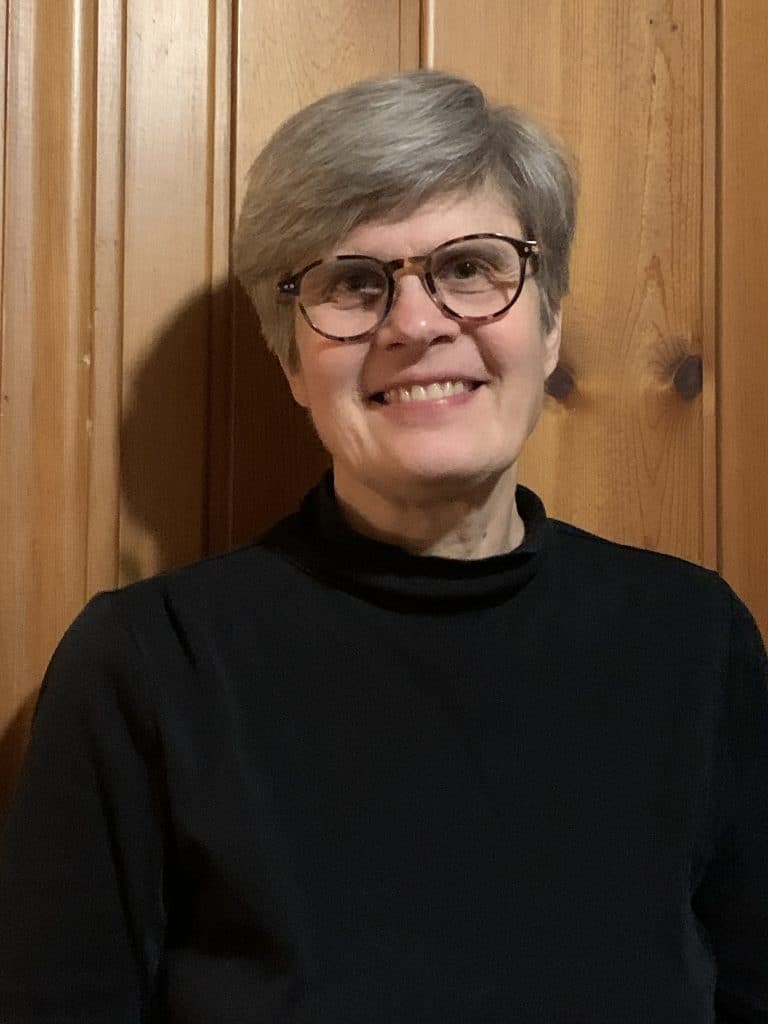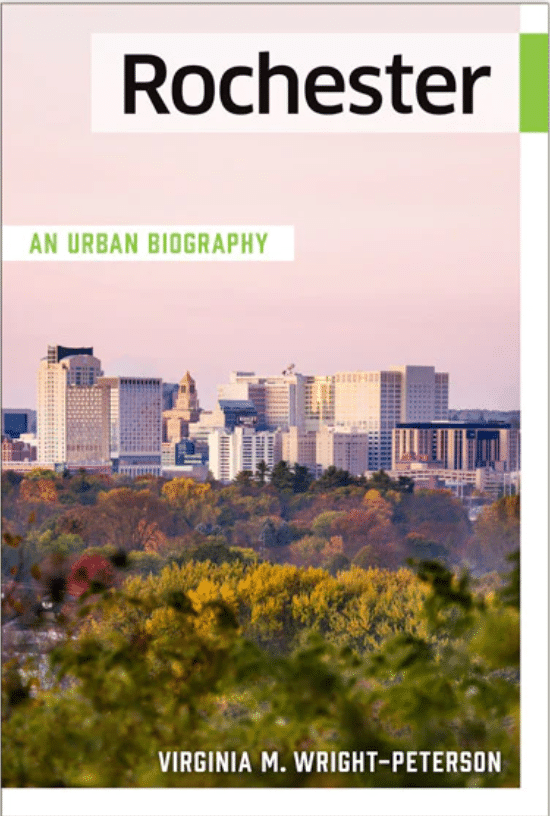Virginia Wright-Peterson, author of Rochester: An Urban Biography
Emilie Buchwald Award for Minnesota Nonfiction Category, sponsored by Annette and John Whaley
Each week leading up to the 35th annual Minnesota Book Awards, we are featuring exclusive interviews with our finalists. You can also watch the authors in conversation with their fellow category finalists here.

Would you tell us one or two things about your finalist book that you are particularly proud of, and why?
Rochester: An Urban Biography shares bold stories of a broad range of people who have been left out of previous narratives about Rochester, which tend to dwell on Mayo Clinic. While the story of Mayo Clinic is impressive and important, that story tends to mask other important stories that ultimately explain a lot about Rochester today.
What advice would you give to an aspiring writer with an interest in your category?
Keep writing. No matter what, don’t put down your pencil, pen, or keyboard. If you are passionate about telling a story that has moved you, it will move others, too. You will undoubtedly encounter barriers, frustrations, and setbacks. Keep believing in yourself. Revise, revise, revise. Surround yourself with people who believe in you and can support you.
Tell us about a favorite book. Why did you find it moving, influential, or otherwise memorable?
Oddly, my non-fiction writing about women was initially inspired by the novel The Women by T.C. Boyle. In that book, Boyle tells the stories of four women in Frank Lloyd Wright’s life. Wright’s life is in the background and the stories of the women illuminate the reality of that creative community. This book led me to begin seeing and writing about the past, placing women and people of color in the forefront behind previously dominate narratives, thus creating a more complete and complex perception of where we have been and what it means about where and who we are today. My books reveal that Mayo Clinic would not be the internationally renowned medical center that it is today without the contributions of many women who are often left out of the story. World War II would not have ended the way it did without the sacrifices and contributions of women, including nearly every woman in Minnesota at time, and the history of the Mayo Clinic has masked many important attributes of Rochester’s past that account for current challenges and successes.

Tell us something about yourself that is not widely known.
Growing up and spending most of my adult life in Rochester, Minnesota, I have envied many of the writers of the early and mid-twentieth century who traveled to Europe, Asia, and Africa to gain different perspectives and spark creativity. My adventurous spirit resulted in a Fulbright Scholarship in Algeria and a deployment with the Red Cross to a military base in Iraq. I have also spent meaningful time in Japan and Europe. So much of what holds meaning for us is in the everyday, but for me to see it more clearly, I value experiences that immersed me in other ways of being.
In addition, I regenerate my creative spirit by spending time on the North Shore and with my daughter, grandchildren, and friends. I am also grateful to be a part of a new, innovative campus – University of Minnesota Rochester – where I can contribute in creativee ways.
The Minnesota Book Awards is a celebration of writers, readers – and libraries. We’d love if you would share thoughts about the role and value of libraries.
Some of my very first childhood memories are of my mother taking me to the Rochester Public Library. When I was young, it was housed in a castle-like limestone building adorned at the entrance with an owl. I fell in love with books and stories there. I am grateful to my mother for taking me. My life would not be the same without those trips to the library. We also got books from the bookmobile, which was a new thing when I was small. The silver bus looked like a spaceship to me in the 1960s when it pulled into our neighborhood. In addition to my nostalgia, recently I have gained a new appreciation for the free access to information, which is vitally important now more than ever. I see libraries as important cornerstones to our democracy.
Virginia Wright-Peterson is the author of Women of the Mayo Clinic and A Woman’s War, Too. She has taught as a Fulbright scholar in Algiers, was deployed to Iraq with the Red Cross, and currently serves in administration at University of Minnesota Rochester.

